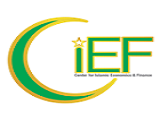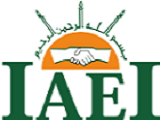The Role Of Islamic Banks In Yemen In Supporting Microfinance Institutions
Abstract
Islamic banks become the best solution to the crisis of the global financial system at present.in addition, it become also a real player in dealing with economic crises and the financial complexities of the traditional banking system prevailing in the world today. moreover, countries and governments in both developed and developing countries have become increasingly interested in the issue of microfinance because of their close association with the development in various countries and may be interested in supporting countries and governments for microfinance by enacting the necessary laws and legislation. And the establishment of institutions and bodies specialized in financing and support these microfinance in addition to the microfinance in many developed countries have become a specialty taught in universities and specialized institutes. Scientific seminars and conferences are held in order to support and develop it so that it achieves the objectives set for it and thus meets the aspirations of society in development. This study focus on the role of Islamic banks that can play an active and influential role in generating wealth and reducing poverty through financing for Microfinance institutions where the study showed the social role of the nature of contracts in Islamic banks through which Islamic banks can be the best in Microfinance.
Keywords : Islamic banks, Microfinance institutions, Yemen
Keywords
Full Text:
PDFReferences
Ahmed, M. (2004), “Islamic Versus Traditional Banking in Arab Region: Premises and Promises”, paper presented to the International Seminar on “The Prospects of Arab Economic Cooperation”, Alexandria, Egypt.
Alshebami, A. S., & Rengarajan, V. (2017). Microfinance Institutions in Yemen “Hurdles and Remedies”. International Journal of Social Work, 4(1), 10.
Haqiqi, A. W. and Pomeranz, F. (2005), “Accounting Needs of Islamic Banking”, on line available at htt://islamic-finance.net/Islamic ethics/artcile12.html, retrieved on 10/16/2005.
Hessou, H. T., Lensink, R., Soumaré, I., & Tchuigoua, H. T. (2018). Provisioning and business cycle: Evidence from microfinance institutions.http://www.fmaconferences.org/Norway/Papers/Conferenceversion.pdf
Liman, N., Hashim, M. K., & Arshad, D. (2017). A Study on the Types of Microfinance Institutions in Nigeria. MAYFEB Journal of Business and Management, 2.http://mayfeb.com/OJS/index.php/BUS/article/view/263
Reed, L.H. (2015). Mapping Pathways out of Poverty. The State of the Microcredit Summit Campaign Report 2015.http://www.fmaconferences.org/Norway/Papers/Conferenceversion.pdf
DOI: http://dx.doi.org/10.24042/febi.v3i2.3515
Refbacks
- There are currently no refbacks.
Copyright (c) 2019
Ikonomika : Jurnal Ekonomi dan Bisnis Islam is a Journal of Islamic Economics and Business, Published by the Faculty of Islamic Economics and Business at UIN Raden Intan Lampung Indonesia. This work is licensed under a Creative Commons Attribution-ShareAlike 4.0 International License.






11.png)


